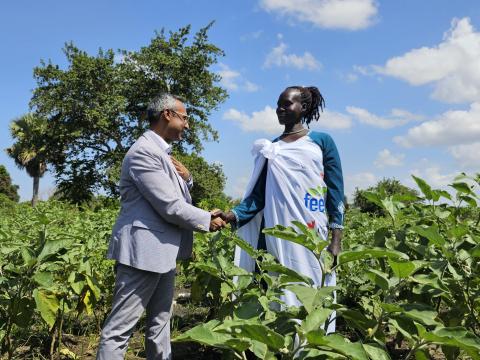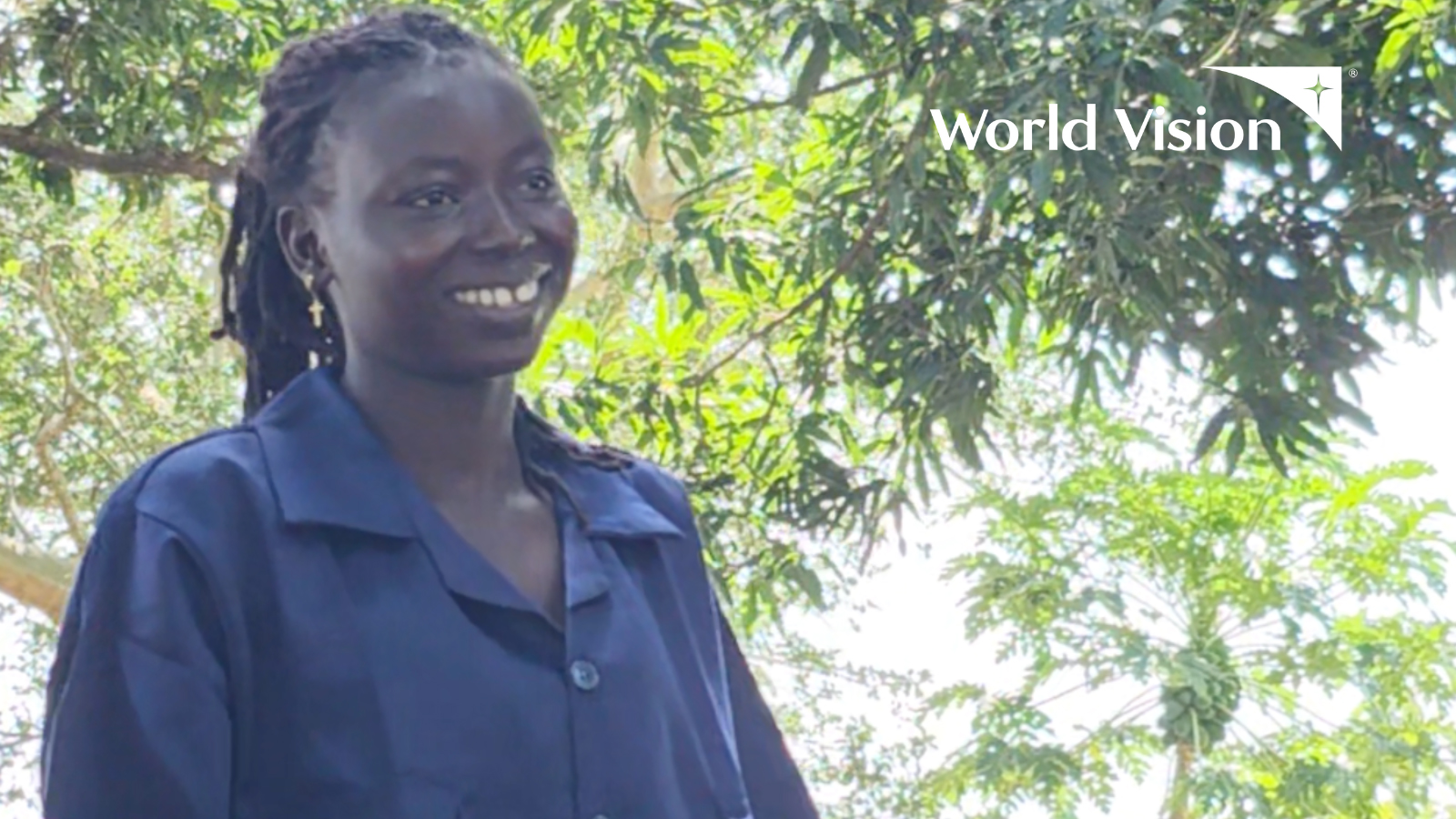Canadian Ambassador-designate to rural women: “Continue to tell your story and inspire more women.”

Empowered women are leading the transformation of their own communities. This was what women in a farming village in Rajaf in Central Equatoria State have shown Canadian Ambassador-designate Aly-Khan Rajani early this week.
"I chose to be an electrician because there is no electrician that is a woman here in my community. There is nothing that a man can do that a woman cannot do," said Delifina, a young woman who had just completed a vocational course in electronics. Even before completing her course, she had already started applying what she learned and has been earning an income to support her studies and family.

When other women and children see that this is becoming normal, this is how society will change.
Susan, a 39-year-old mother of eight children, also showcased her thriving eggplant farm that she manages exceptionally well. Her farms boast plump eggplants cultivated through good agronomic practices. "I pull out weeds in my farm regularly, and I irrigate (water the farm) daily using the water from the Nile River," she said. Susan also shared that she's now been able to supply eggplants to their local market. Aside from farming, she also bakes bread she sells in the market every morning. According to Sudan, it is good for women to be economically productive so that they can help the family. "We should not leave the economic burden to our husbands alone," she said.

Delifina and Susan were two of the many women Ambassador-designate Rajani met while in Rajaf during his visit to the Fortifying Equality and Economic Diversification (FEED II) project site.
Impressed with the women's initiative, commitment, and boldness in building a better future for their children, Ambassador-designate Rajani encouraged them to keep inspiring other women.
"I want you to be your biggest advocates, be the loudest voice. No one else can do that better than you, and you are already doing that. Do more and keep inspiring more women. You've really inspired me. I will share your story with other people and tell them what I've seen here in South Sudan,” Ambassador-designate Rajani stated.
"World Vision, CARE, War Child, and Global Affairs Canada will help, but don't wait for anybody. What you have learned, you share, teach others, inspire a whole generation, and you can do it all by yourself. I am absolutely certain of that. You also have the support of the government, which I think is really important. We have come with the government officials today because when they see what you're doing and how everybody is working together, the international community, the NGOs, the women in the community, they will also know how they can support you. So, it really helps to tell your story," he added.

The Ambassador-designate was joined in by World Vision South Sudan Dr. Mesfin Loha, World Vision South Sudan Operations Director Dorance Cooper, CARE South Sudan Deputy Director for Programs Zipporah Kpamor, FEED II Chief of Party Hailu Tolasa Badhane, and South Sudan Ministry of Humanitarian Affairs and Disaster Management representatives, Adut Marial Takpiny and James Bol Reech.
Funded by Global Affairs Canada | Affaires mondiales Canada, FEED II has been providing community members, especially women, with capacity-strengthening activities on savings and vegetable farming as a business, and mentorship and vocational skills training, particularly on motor mechanics, electrical engineering, and food catering. The project has also been promoting gender equality, gender-based violence awareness messages, and disaster risk reduction and management (DRRM).
In Rajaf, the project has helped the community establish a Savings 4 Transformation group and DRRM committees. The project has also been instrumental in helping the community members craft and articulate their community's vision journey.
FEED II, implemented by World Vision, CARE, and War Child Canada consortium, is a women's empowerment initiative that uses a food security and livelihoods platform across seven states in South Sudan.
With the ultimate goal of reducing inequalities between women and men in access to and control over resources to enhance food security in South Sudan, the FEED II project, funded by Global Affairs Canada), has impacted 223,890 individuals, mostly rural women, including children, demonstrating our commitment to supporting the community.